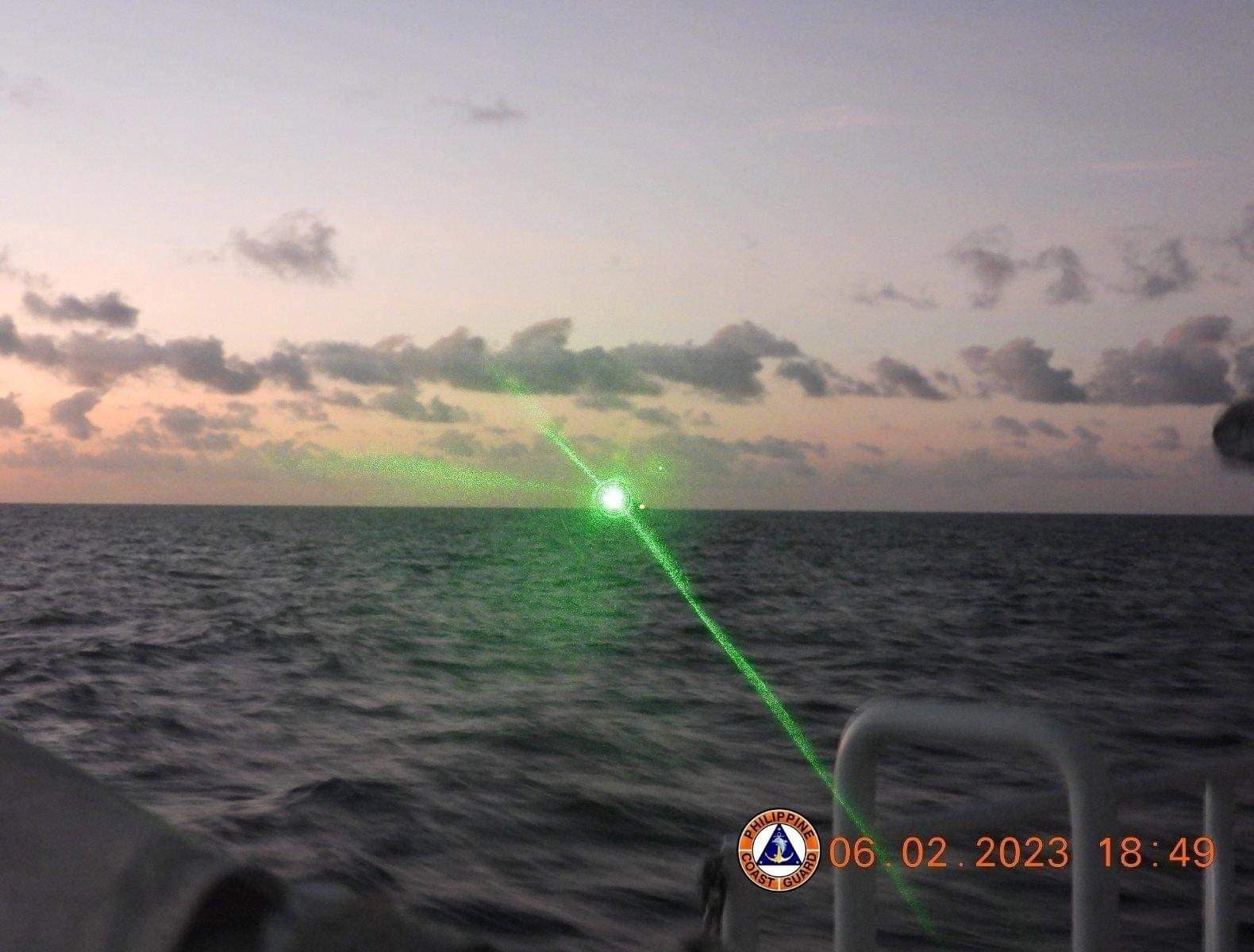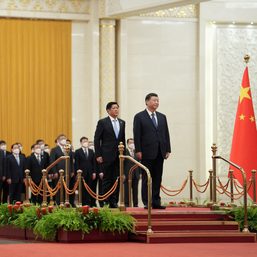SUMMARY
This is AI generated summarization, which may have errors. For context, always refer to the full article.

MANILA, Philippines – China’s recent use of a military-grade laser against a Philippine Coast Guard vessel in the West Philippine Sea has prompted foreign governments to renew calls for Beijing to comply with the 2016 landmark arbitral award.
The United States, Japan, Australia, Canada, Germany, the United Kingdom, and Denmark were among countries which expressed serious concern over China’s “dangerous” and “provocative” actions, the latest of which saw a China Coast Guard ship aim a military-grade laser at the BRP Malapascua.
China’s actions caused “temporary blindness” lasting some 10 to 15 seconds among crew at the BRP Malapascua, and had been accompanied by unsafe maneuvers by the CCG ship, the PCG said.
Foreign governments condemned this, calling China’s actions “intimidatory.” The Philippines, filing a protest, called Beijing’s moves as “acts of aggression.”
Countries that have spoken out on the issue raised the 2016 Hague ruling filed and won by the Philippines and called on China to comply with the “final and legally binding” award.
“As a party to UNCLOS (United Nations Convention on the Law of the Sea), the PRC (Peoples’ Republic of China must comply with its obligations, including notable, the 2-16 SCS (South China Sea) arbitration decision,” Canada said.
The Hague ruling asserted Manila’s rights in waters in the West Philippine Sea and ruled that China’s expansive nine-dash-line had no legal basis.
Despite this, China has continued to ignore the ruling, which had “no effect” on its assertive claims in the disputed waterway.
What countries are saying
Reacting to the incident, the US backed the Philippines and reiterated that its commitments under the Mutual Defense Treaty covered any attack on Philippine vessels, including PCG ships, in South China Sea.
Japan called on China to respect International law and expressed its opposition to actions that increased tensions in the volatile waterway.
Canada expressed “firm and unwavering” support for the Philippines and called out China’s “coercive” actions.
Germany and the United Kingdom expressed their commitment to UNCLOS and both asserted the finality of the 2016 arbitral award.
Denmark also expressed support for the Philippines, saying “all steps toward militarization of disputes is a threat to regional peace and security.”
Enforcing the ruling
Renewed support for the Philippines’ landmark legal victory is crucial in efforts to enforce the arbitral award.
Experts have often called on countries in both Southeast Asia and other parts of the world to support the Hague ruling, saying international pressure on China to abide by the award was one way of preserving international law in the disputed waters.
Bolstering international support for the award was also essential for the Philippines, after former president Rodrigo Duterte downplayed the ruling during his six-year term in favor of fostering warm ties with China.
President Ferdinand Marcos Jr. earlier vowed to uphold the ruling and had declared that his government will not give up “even a single square inch of Philippine territory” to any foreign power. – Rappler.com
Add a comment
How does this make you feel?













There are no comments yet. Add your comment to start the conversation.